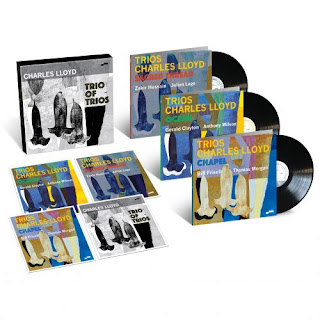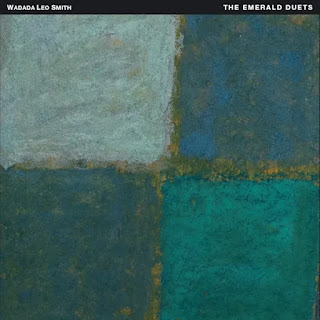It’s a voice that soars – pure, clear and true — above bass and synths, traditional percussion and infectious Mande guitar grooves. A stop-you-in-your-tracks voice instantly familiar to anyone in Mali, West Africa: Rokia Koné, aka the Rose of Bamako.One of Mali’s most beloved and dynamic artists, Koné is a force to be reckoned with. Her captivating performances in the city’s local maquis clubs very often last for hours, as Koné runs the gamut of emotion from joy to despair, fury to tenderness, wielding that astounding voice with grace and power. For her debut album, Koné might have been content with showing off that soulful instrument on a traditional repertoire of songs.
Instead she’s teamed with Irish-born, California-based rock producer Jacknife Lee — and reimagined the Malian sound in ways leftfield and ground breaking.
Welcome, then, BAMANAN, a collaboration that connects the great ancient kingdoms of Mali and the bustling modern street life of its capital, Bamako to a remote recording studio nestled within California’s Topanga Canyon. That bridges deep tradition and forward-facing innovation.
Jacknife Lee is the acclaimed producer of bands including U2, R.E.M and The Killers, and has earned Grammy recognition for his work on Taylor Swift’s multi-million selling Red. Stadium-sized soundscapes are his speciality. Yet BAMANAN finds Lee upholding the stark beauty of Rokia’s voice with subtlety and sensitivity. Every nuance and breath is heard, each inflection and melismatic improvisation carefully preserved.
Koné’s musical journey began as a young child in the courtyard of her home in Dioro near Ségou, the cradle of the great Bamana Empire.
“I would mostly sing my grandmother’s songs,” she says. “My uncles and aunts on both sides of my family were also singers. I was always surrounded by music.”
The young Rokia headed to Bamako, becoming a backing singer for Alia Coulibaly, one of Mali’s biggest stars, then quickly earned top billing as a solo artist in her own right. In 2016 she caught the attention of Valérie Malot, founder of renowned French booking agency 3D Family, who invited her to join feminist supergroup (and later, Real World Records signings) Les Amazones d’Afrique and make her debut on an international stage. They collaborated on several songs for the band’s first album, sparking a close creative relationship.
“Rokia’s music is based in improvisation,” says Malot. “It’s very instinctive and passionate. She gives everything when she sings. But in order to do this, she has to make herself vulnerable, and that demands trust. Eventually, we found a great way of working together, and she wanted me to help her make a record of her own that could appeal to audiences beyond Mali.”
BAMANAN, long gestating, was born out of unexpected circumstances and seized opportunities: a recording studio becoming vacant in Bamako. A free stop-over day in Paris while on tour with Les Amazones d’Afrique. A jam during a band rehearsal in Mallorca. A pandemic.
“We knew early on that magic had been captured,” Malot recalls, “But then I was busy working on Les Amazones d’Afrique’s second album and tour and Rokia had her own commitments in Mali. Life got in the way, progress halted.”
Then came 2020’s enforced period of isolation and reflection. Locked down in her apartment in Portugal, Malot uncovered a hard drive marked ‘ROKIA’. Finally, the time is right.
Some 4000 miles west, amid the trees of Topanga Canyon, north of Santa Monica, Jacknife Lee had an empty diary and an urge to create. Having recently completed a role as a judge on a remix contest sponsored by Real World Records and audio hardware company Universal Audio, he found himself mesmerised by Les Amazones d’Afrique — more specifically, by a Mande guitar part amidst the remix pack for their song ‘Love’.
“I really wanted to find out more about the guitarist so Real World put me in touch with Valérie,” says Lee. “She told me his name was Salif, and that he played lead for a Malian singer called Rokia Koné. Then she told me they had started an album but needed help to finish it.”
Lee freely admits he was floored by Konés voice on ‘Anw Tile’, the first track he heard, after which he began picking apart the sessions he was sent. Isolating a drum part, looping a guitar, laying down some synth pads: “I’m thinking, damn, I have no idea how to approach this, but I kind of know where I’m going. I love that naiveté. It really allows me to create something good.”
Working on Koné’s music dovetailed with a change in attitude for Lee. A few years previously he’d taught music to teenagers whose enthusiasm around the machinations of Nineties hip-hop got him thinking about his own youth — when he was excited by the mystery of music making.
“I realised I had been lost for years,” he says. “I had been making bad decisions about the work I was doing. My motivation had been wrong. So I fell in love with music all over again, started frequenting record stores, seeking out new sounds.
“I wanted to switch from being the person who had the most amount of knowledge in the room to the one saying ‘I don’t have a clue what I’m doing but let’s just see what happens.’”
The opportunity to work on Rokia’s album met all of the criteria. “It actually felt like the thing I had always wished to do,” he says.
No matter that pandemic-related travel restrictions ruled out direct contact: “This process afforded Rokia and her musicians the freedom to create without being bothered by my presence, and I was allowed space to experiment. My biggest breakthroughs happen when the musicians aren’t there,” he says. “It’s how I prefer to work these days.”
At its heart, BAMANAN is a tribute to the Bambara of southern Mali, to their language, culture and the practices. Koné takes inspiration from the tradition of the hereditary griots, the praise singers vital to the fabric of Malian society. “It is the role of the griot to perpetuate the tradition,” says Koné. “To remind us of our origins, our culture.”
Rokia invokes her ancestors on a nostalgic, hugely dramatic trilogy of songs — ‘Anw Tile’, ‘Bambougou N’tji’ and ‘Soyi N’galanba’ – that praise the great kings of Segou’s past. In ‘Mansa Soyari’, a song she composed for Les Amazones d’Afrique, Koné opts to replace the male heroes of Mali’s history with female heroines including singers Ramata Diakité and Fanta Damba — singers who
through their music were a source of inspiration and guidance to the women and children of their society, including Rokia herself.
“The advice I give to women and children in my songs is that there is always hope,” she says. “Nothing is impossible. I tell them not to feel rejected or forgotten by society.”
This message is clear on ‘Mayougouba’, a song that summons women and girls to the dancefloor:
“Move, dance,” she sings. “You’re perfect as you are.”
On ‘Shezita’, ‘Kurunba’ and ‘Dunden’, Rokia warns of enemies close to home (think disrespectful husbands, jealous co-wives, gossipers and haters), preaching resilience in the face of adversity. Elsewhere, she holds the classic griot role as a bearer of advice and wisdom on the song ‘Bi Ye Tulonba Ye’. “The situation in Mali is very difficult right now. But other countries have their conflict too. The message of this song calls for us to end to all wars and disputes and come together for a great party.”
The album’s most reflective moment comes on the beautiful ‘N’yanyan’, which finds Koné accompanied solely by electric piano. The vocals were recorded in Bamako on 18th August 2020, the night of a coup d’état that marked another period of instability for Mali, a country troubled by severe political upheaval for almost a decade. Koné delivered a profound vocal performance in a single take, just before the power was shut down and a curfew imposed on the city.
“I sing ’N’yanyan’ for all human beings, to tell them that we are in the middle ground and all this will end one day. This difficulty is only a moment in time, and all things will pass.”
In Jacknife Lee, Rokia Koné found a musical soulmate, a collaborator who helped unlock her songs with exquisite, timeless arrangements.
“I love the new palette of colours,” says Koné, the next great voice of West Africa. “We’ve made something fresh. Something that stands out.”




















